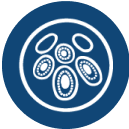For more information, call or email the Pfizer Clinical Trial Contact Center:
When calling, please reference this study number:

 NCT# stands for National Clinical Trial number. This is a unique identification code given to each clinical trial registered on ClinicalTrials.gov. The format is "NCT" followed by an 8-digit number (for example, NCT00000419). Also called the ClinicalTrials.gov identifier.
NCT06447662
NCT# stands for National Clinical Trial number. This is a unique identification code given to each clinical trial registered on ClinicalTrials.gov. The format is "NCT" followed by an 8-digit number (for example, NCT00000419). Also called the ClinicalTrials.gov identifier.
NCT06447662

 Back
Back



